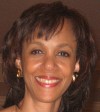On a recent Thursday evening at Ebenezer Lutheran in Chicago, students sat at tables smiling, laughing, talking and enjoying a meal of pasta prepared by Michael Fick, pastor of the congregation. Roughly 30 minutes later, it was time to get down to work.
In short order, the students sat on sofas or gathered at tables in different parts of the church, their heads buried in books or eyes focused on homework as they engaged in discussions with adult volunteers.
The youth are participants in Ebenezer’s 15-year-old free tutoring program. It’s not your typical study hall and does far more than teach academics, said students, parents and volunteers.
The volunteers serve as mentors who assist students with homework; help them improve their English speaking and writing skills; and prepare them for tests, including the SAT. They’ve helped them qualify for enrollment in higher-performing Chicago high schools, joined them on college visits and assisted them in navigating financial aid programs.
Six years ago Eritrean immigrant Betelihm Kihshen was a shy student and first-time participant in the program, which is open to first-graders through high school youth. She was struggling with learning English and worried about keeping up with schoolwork.
Today she is a sophomore in the pre-nursing program at ELCA-affiliated Augustana College, Rock Island, Ill.—the first in her family to go to college.
Frehiwet Negassi has a similar story. She graduated last year from St. Joseph’s College, Rennselaer, Ind.
Both say they were helped a great deal by the tutoring program and now they have paid it forward, volunteering as tutors themselves.
Norma Bravo has two children who receive help in math and English through Ebenezer’s program. “My daughter was getting Ds, they went to Bs,” she said. “My son went from Cs to Bs.”
Offered weekly during the school year, the program has 42 enrolled students who come from a variety of backgrounds and families, ranging from Eritrean to Hispanic to Asian. None are members of Ebenezer, and they all live in homes where English isn’t the primary language. All qualify for free lunch programs.
The ministry typically has a waiting list, said Norm Dynneson, a retired school counselor and teacher who is the program’s longtime facilitator and a tutor. He said the initiative is part of Ebenezer’s commitment to community outreach and social justice. It was suggested by the late Chuck Hadley, said his wife, Georgian, a longtime tutor. She credits Dynneson with enriching the program.
Volunteers provide free meals before every tutoring session, and the initiative includes a six-week summer enrichment component, and recreational and educational field trips.
Fick and Dynneson said many of the students’ parents work multiple jobs and are challenged in assisting their children with schoolwork and helping them navigate the educational system.
The program, which Fick and Dynneson (normemerson@aol.com) say can be replicated at other churches, has served hundreds of students, many of them over a period of several years.
“Every kid who has stayed in tutoring through 12th grade is either in college or has graduated,” Dynneson said. “My educational philosophy is that all kids want to be happy and successful, and if we can figure out what is keeping them from being happy or successful and fix that problem, they will naturally do well. They will naturally move ahead.”
He credits the commitment of the tutors, composed of 21 church and non-church volunteers, as a key element. Some of the tutors are current or retired teachers or education majors in college. Dynneson, who has attended students’ graduations and family outings, provides orientation for the tutors and continual support and problem-solving guidance.
Tutors receive release of information agreements from parents, which allows teachers to keep them updated on students’ problem areas and performance to better help them tailor assistance.
Kihshen said the tutors are like a second family to her. “[The program] helped me academically,” she said. “It helped me realize there were other people just like me. In school, people would emphasize you’re different, but the tutoring program accepted the differences and was there to help us.”
For Kihshen, the program became the place where she started to find her way and helped her graduate from high school with honors.
The program receives $1,500 in annual funding from Ebenezer, Dynneson said. Church members and organizations also have donated to the initiative.
“It’s the kind of ministry where the church is offering benefit and value to the community without strings attached,” Fick said. “It allows us to demonstrate in our actions that we’re committed to the neighborhood and community.”
While students have benefited, so have the congregation and volunteers.
“We get to build these wonderful relations with children and families, many who have religious communities of their own,” Fick said. “We get connected with other churches and religious communities we may not otherwise have contact with.
“The volunteers—it enriches their sense of calling to offer love, care, help and support to those who could benefit from it, and then they receive the benefits of this wonderful relationship with children who they otherwise may not have had the opportunity to meet.”




